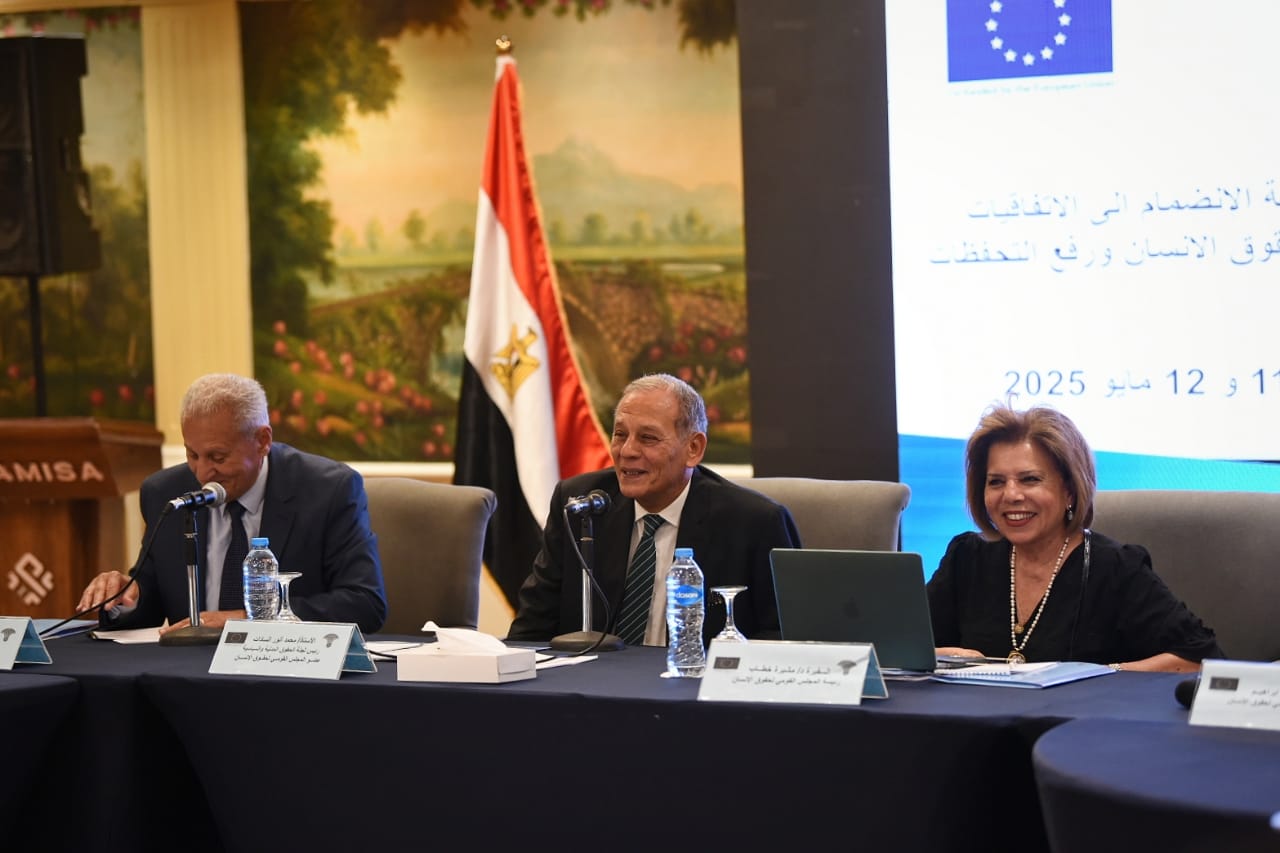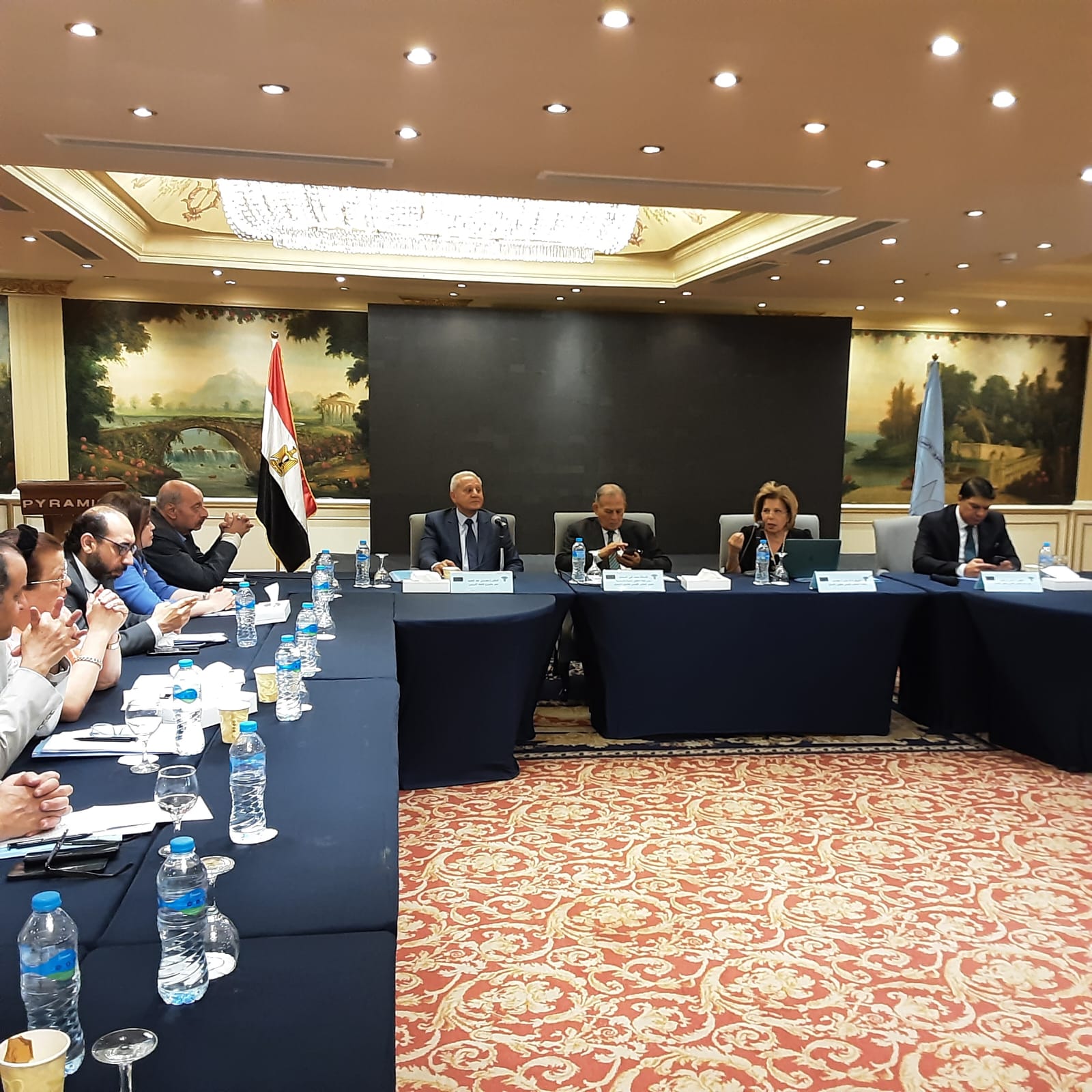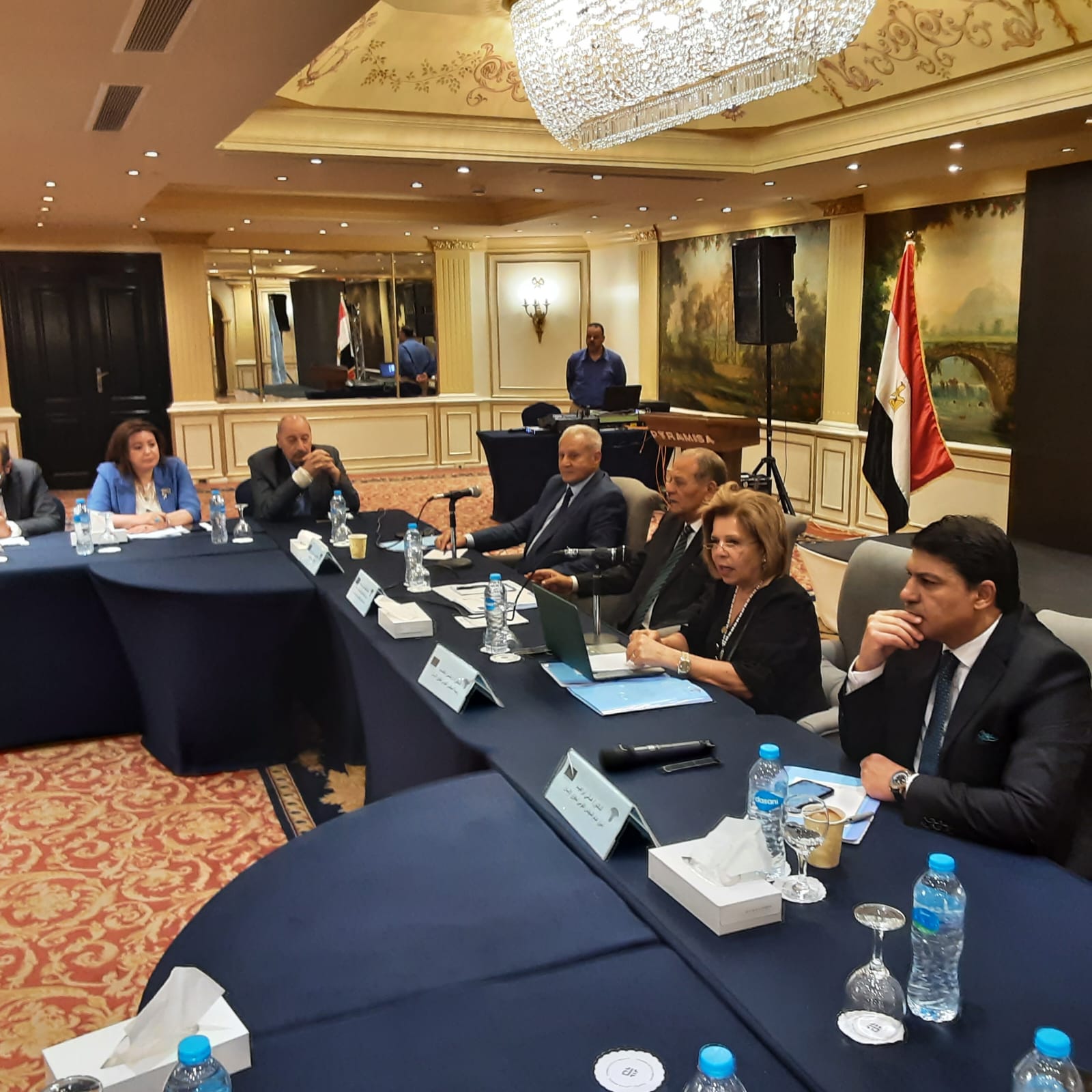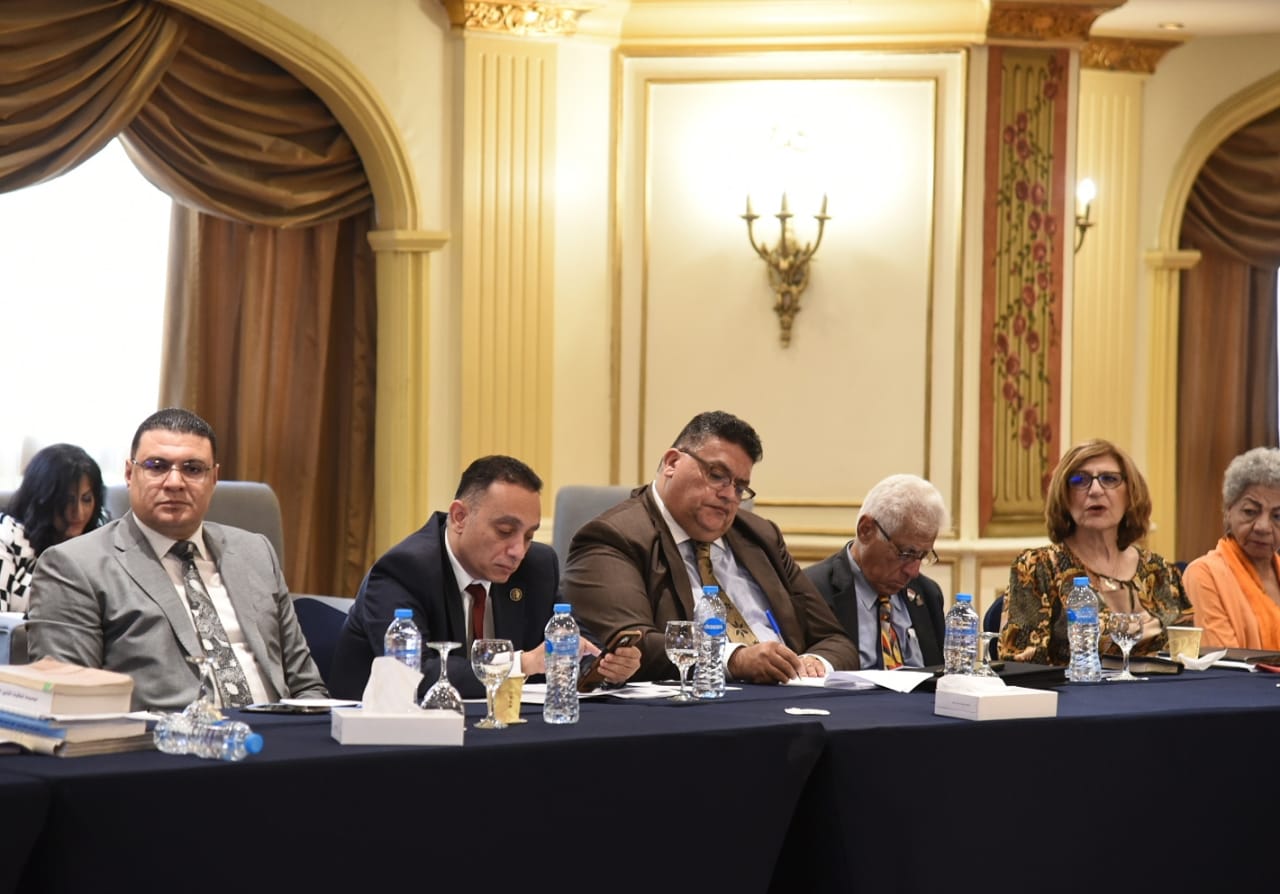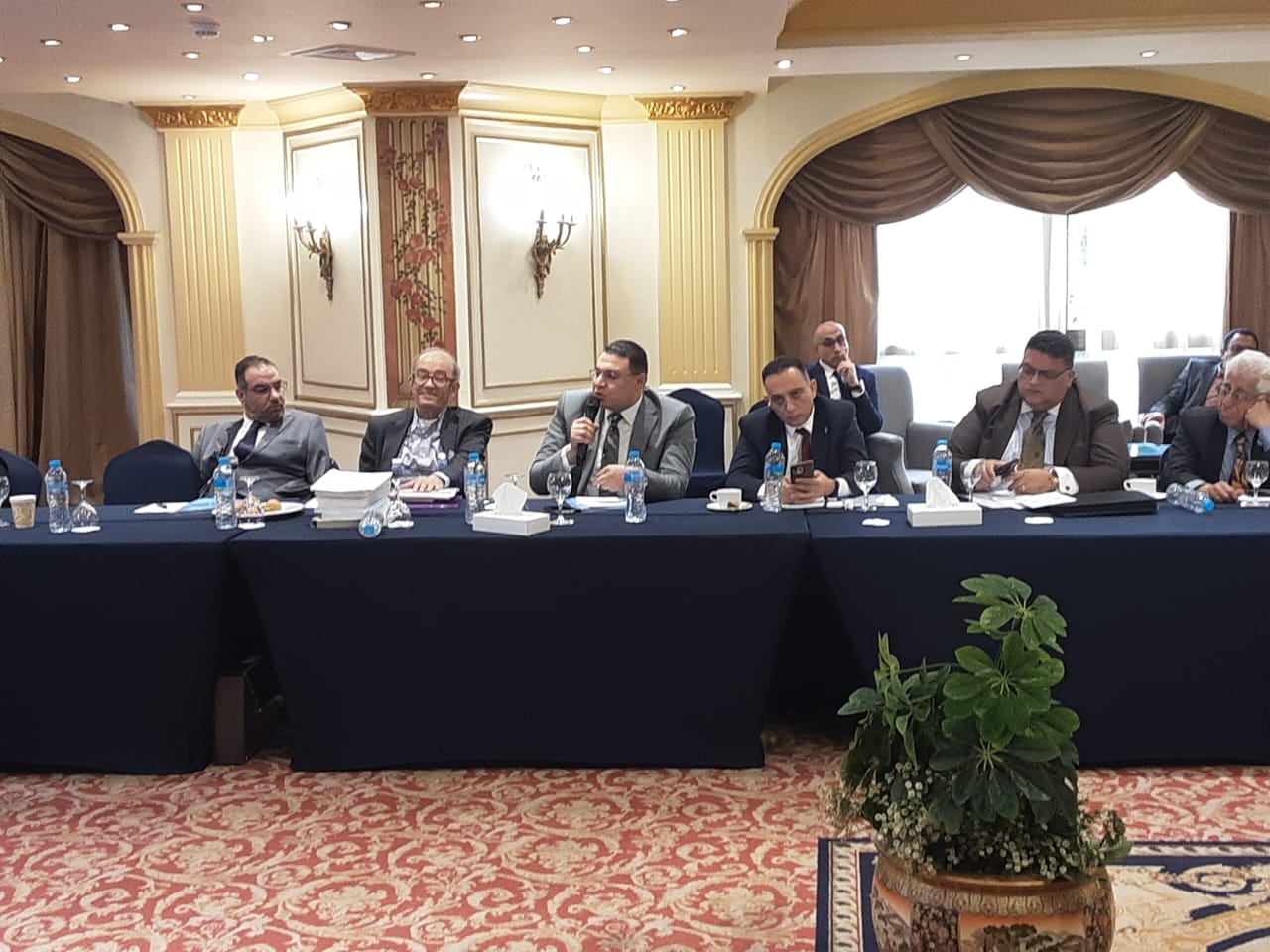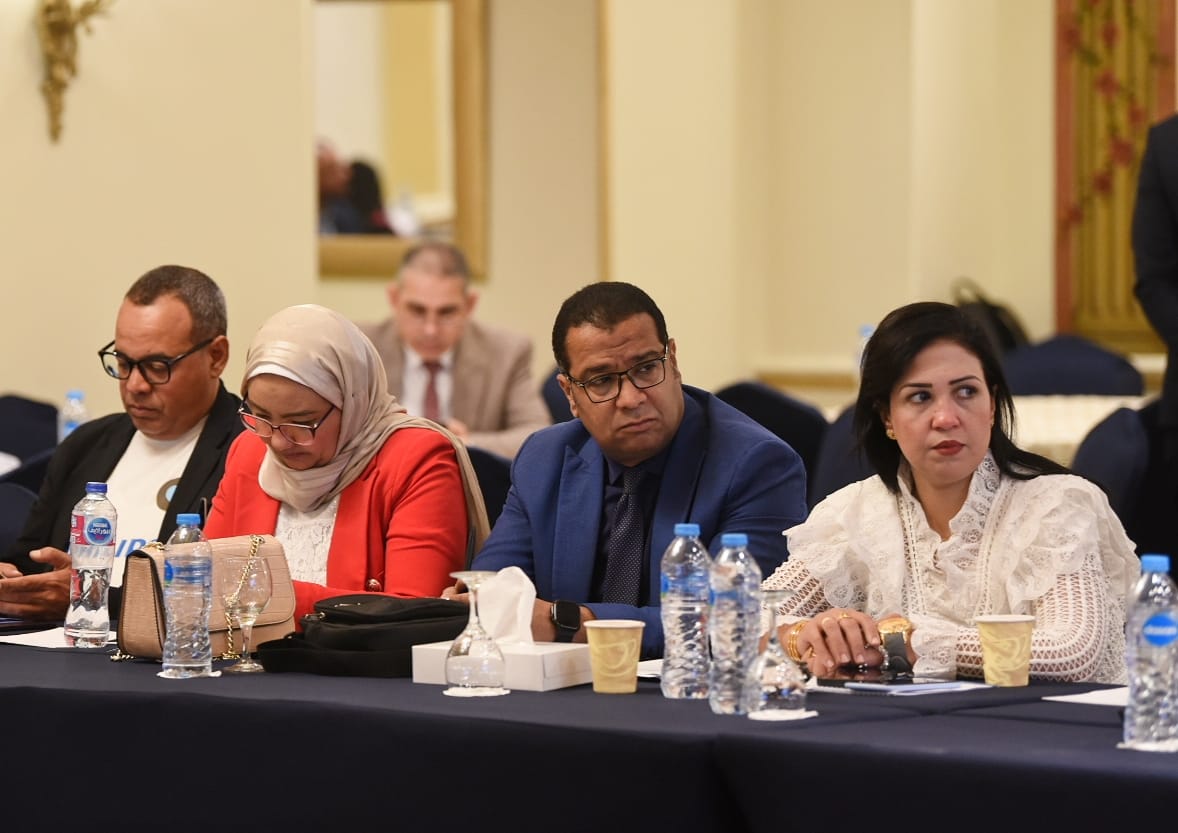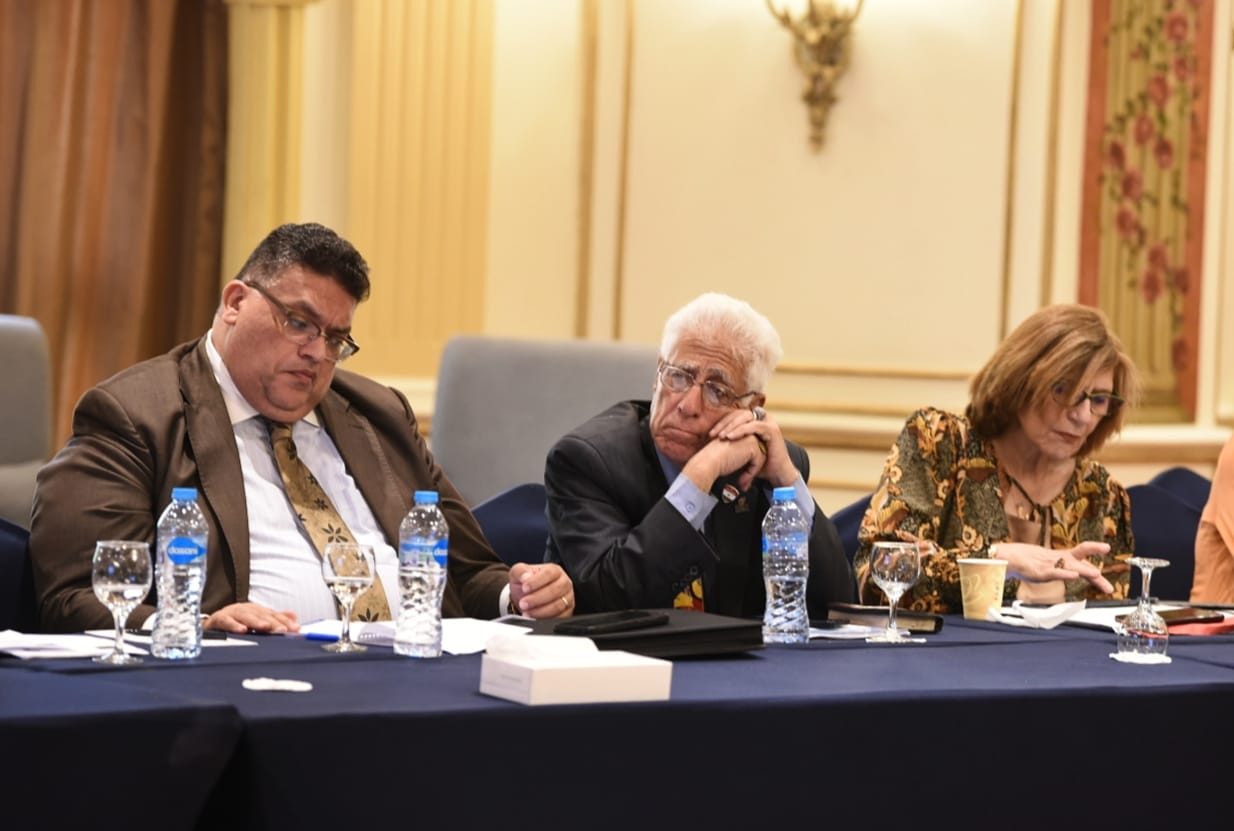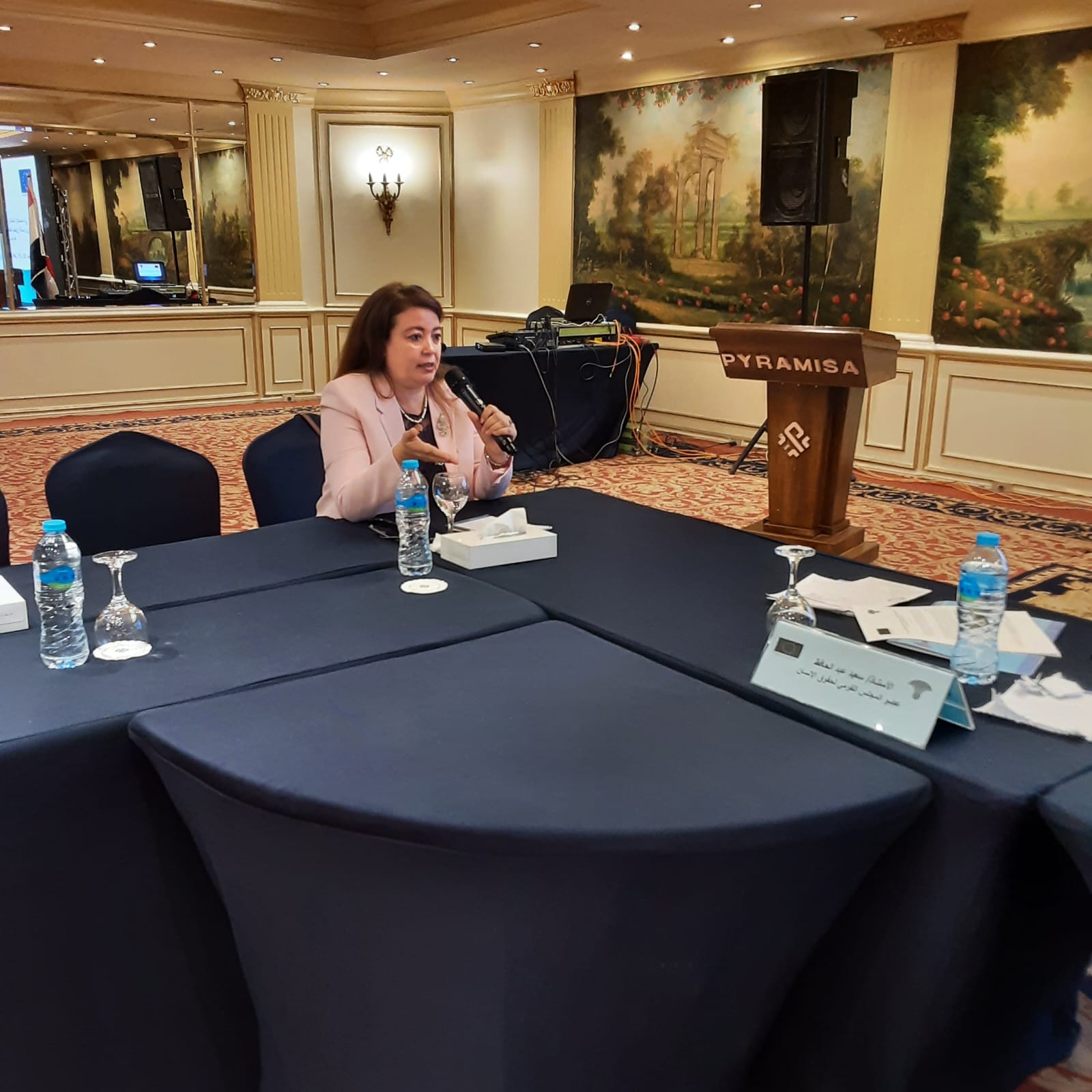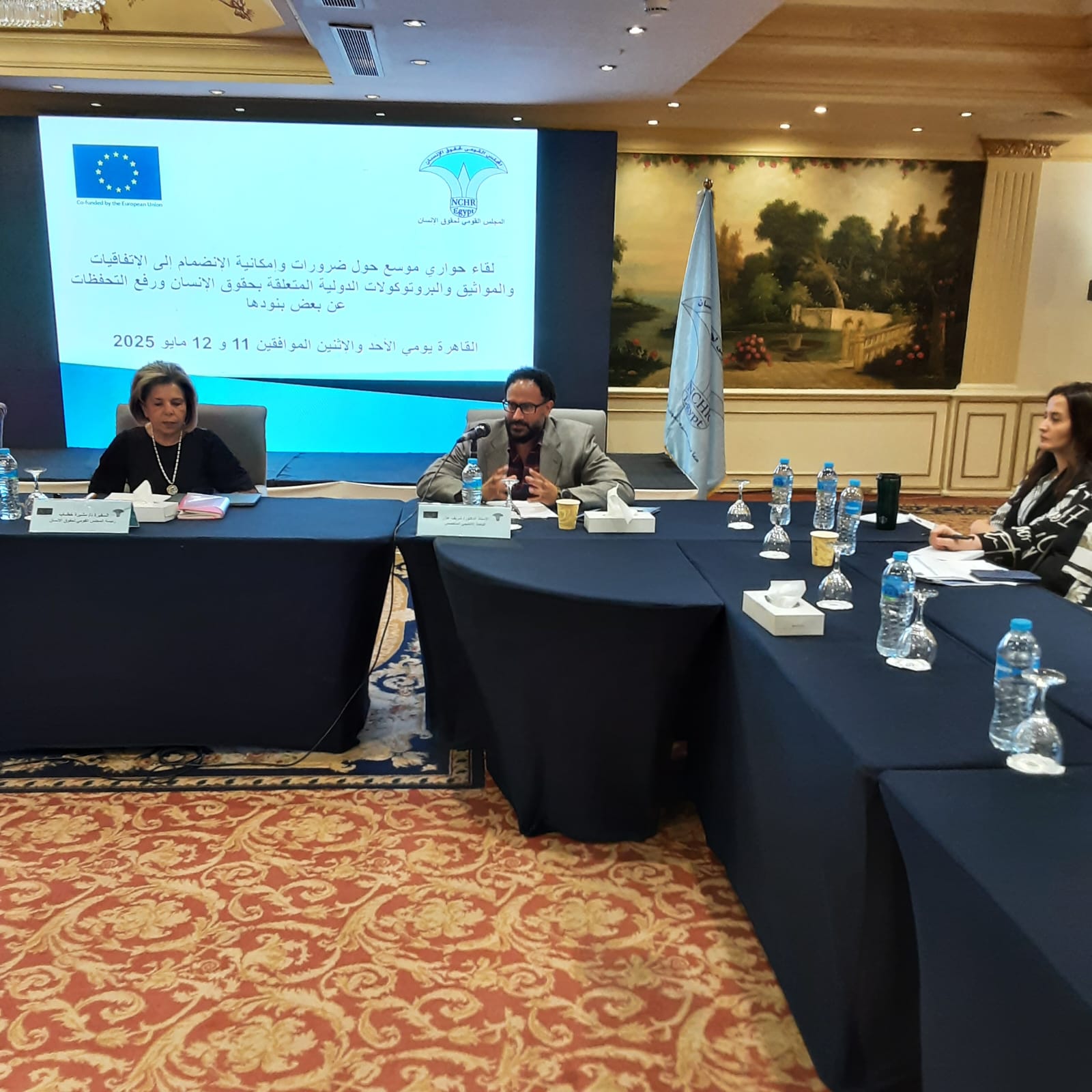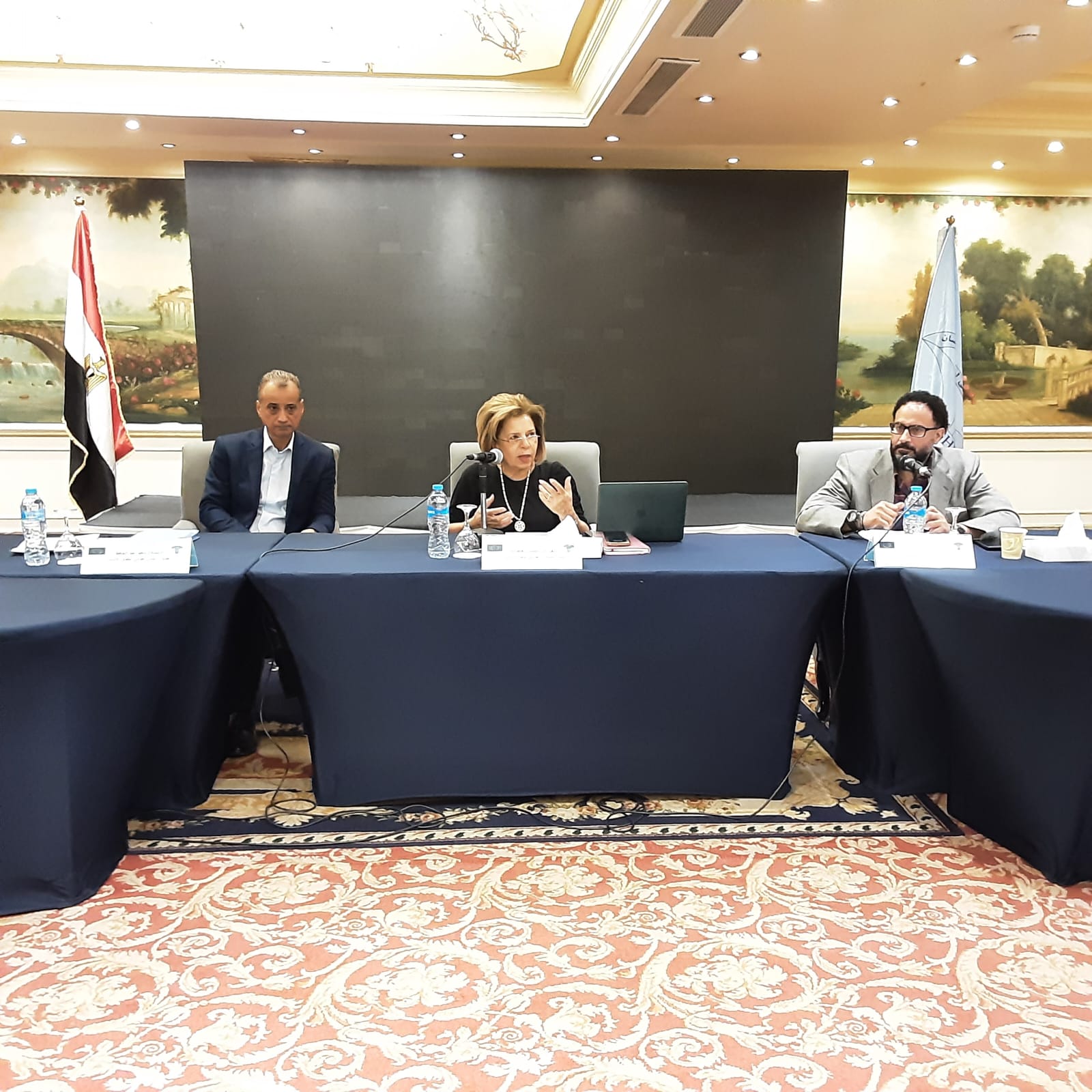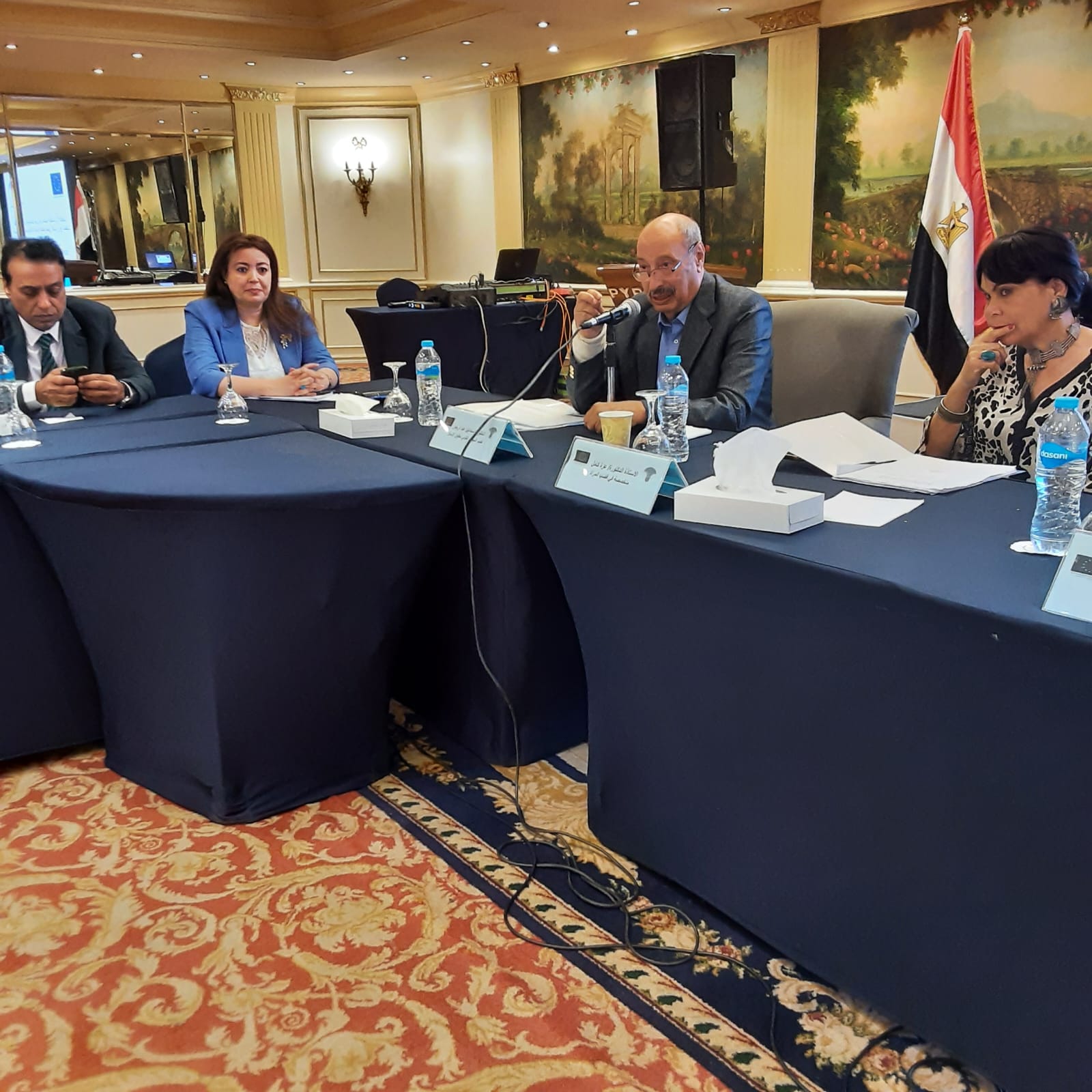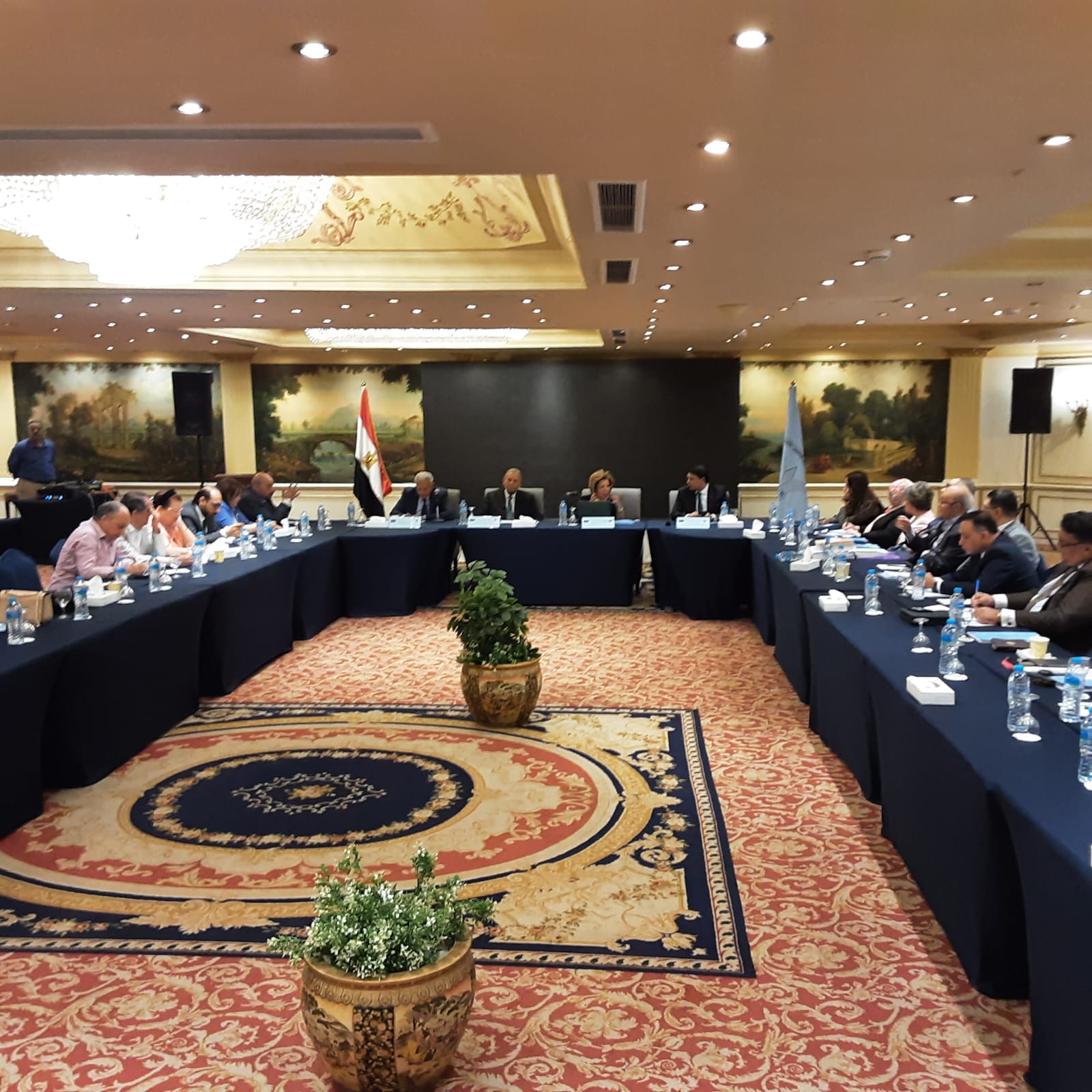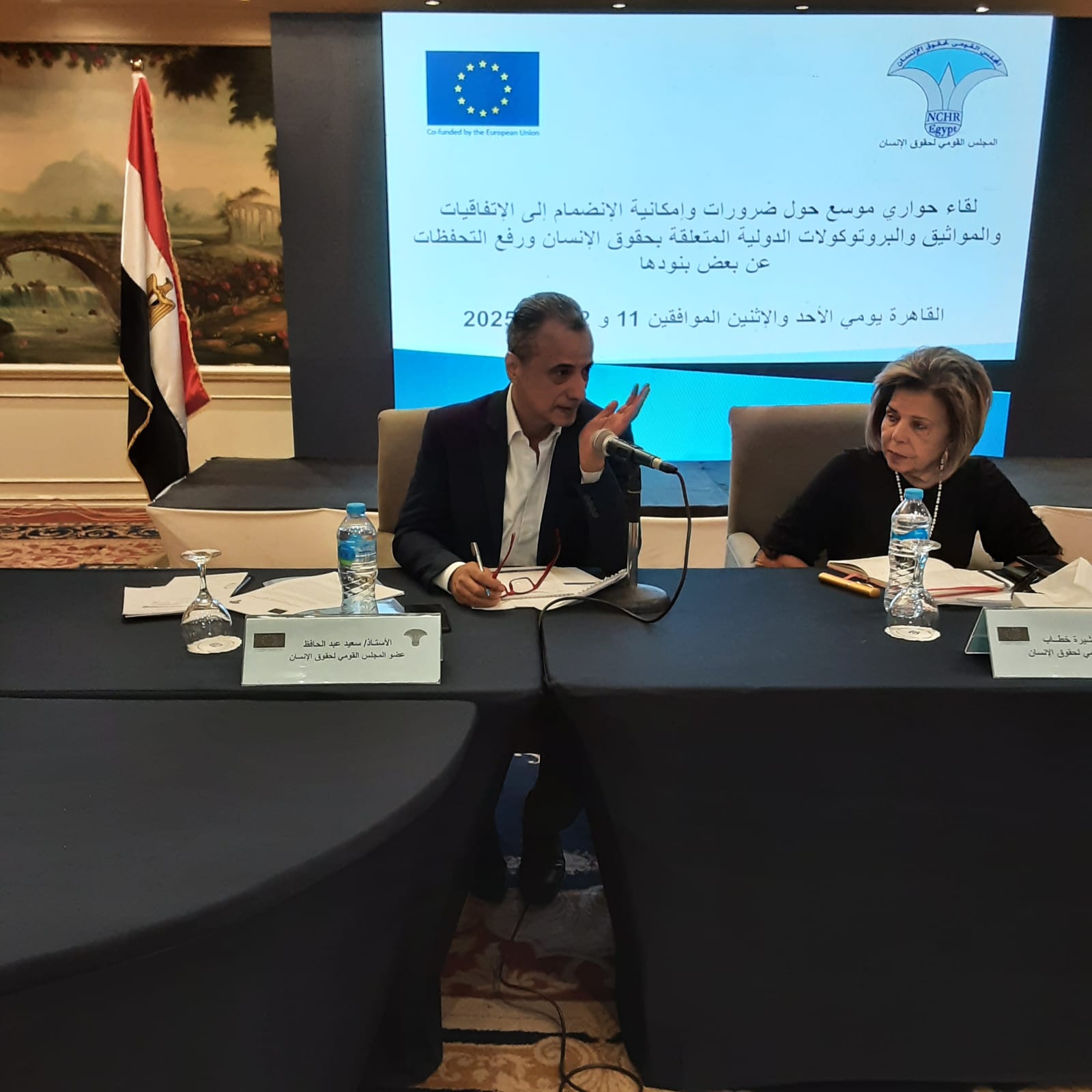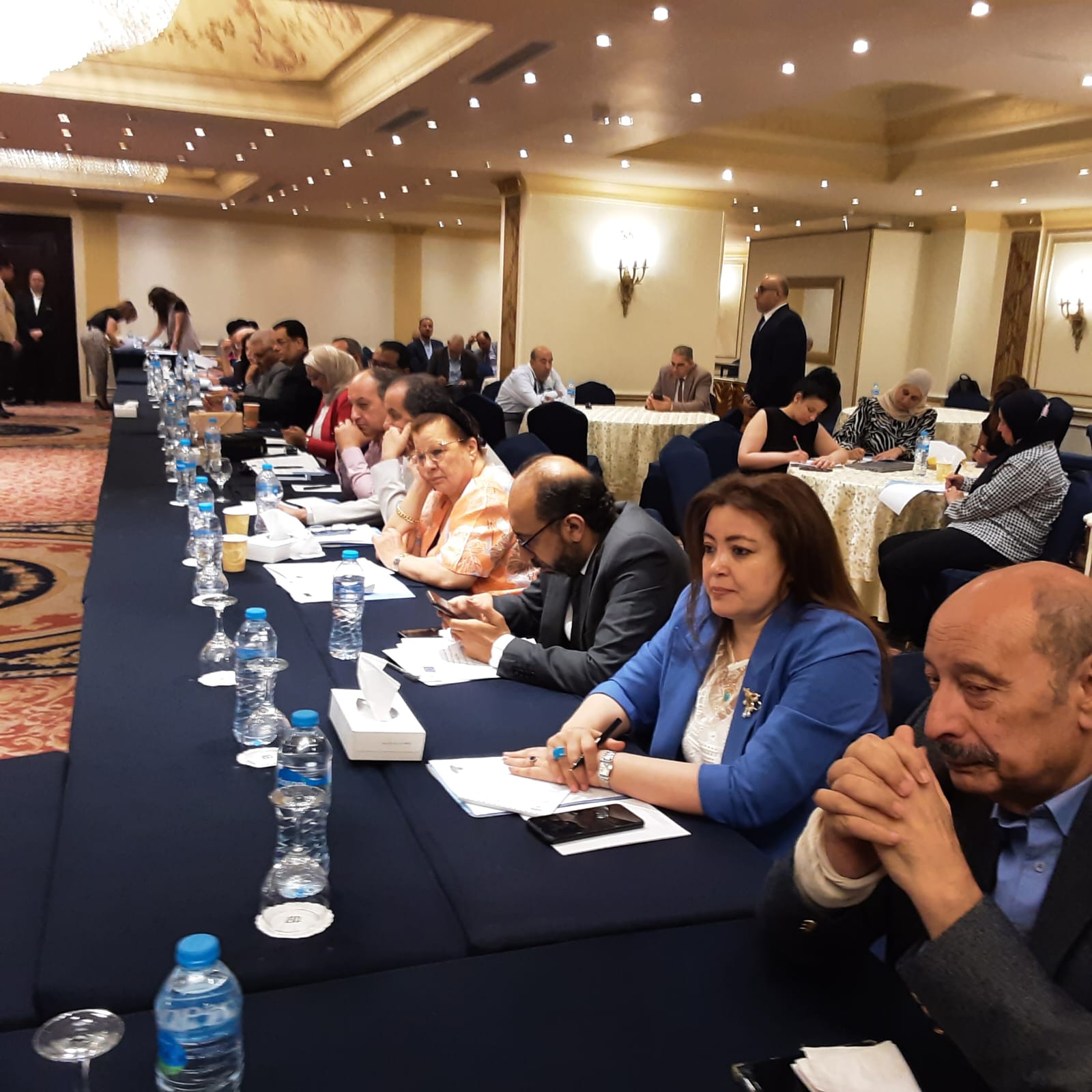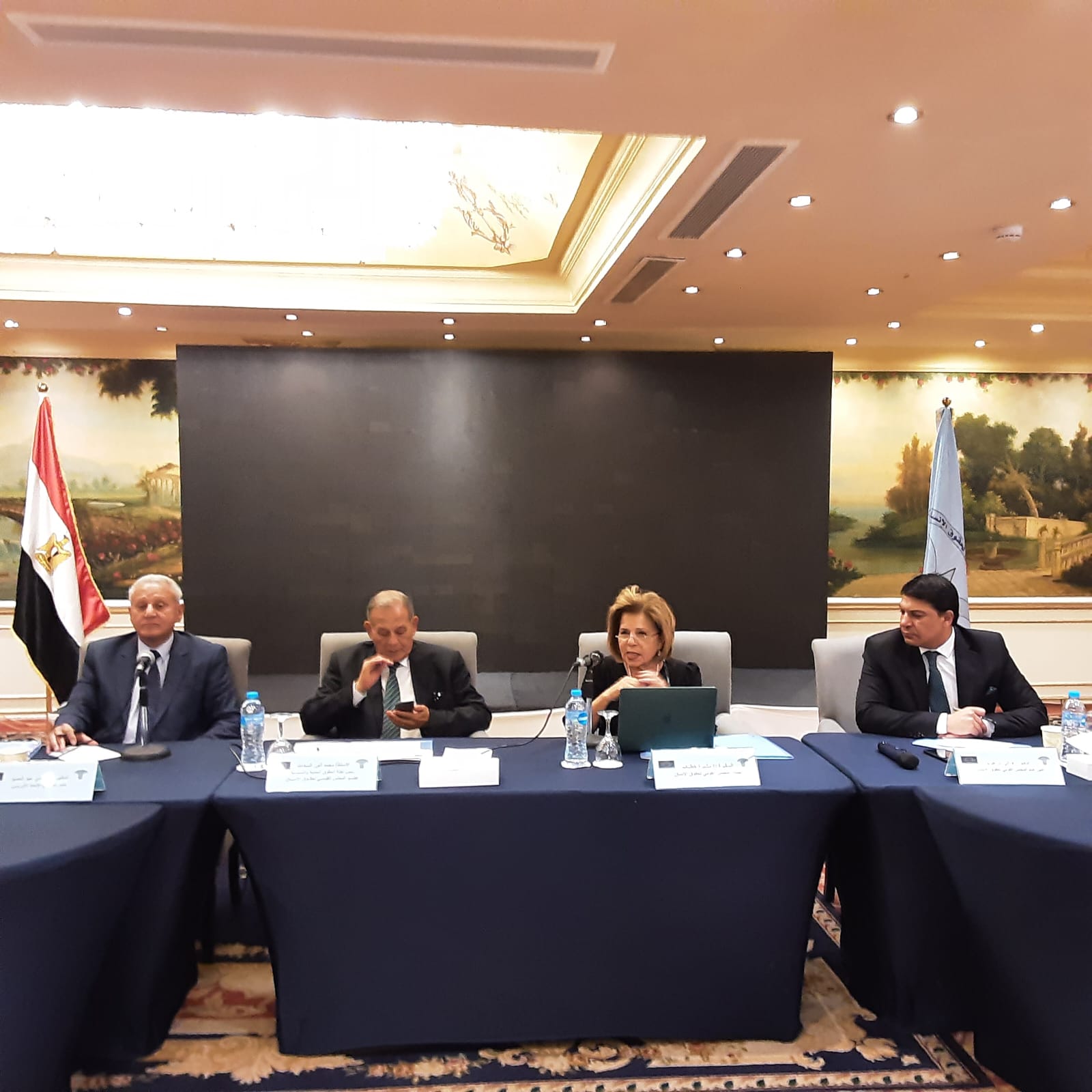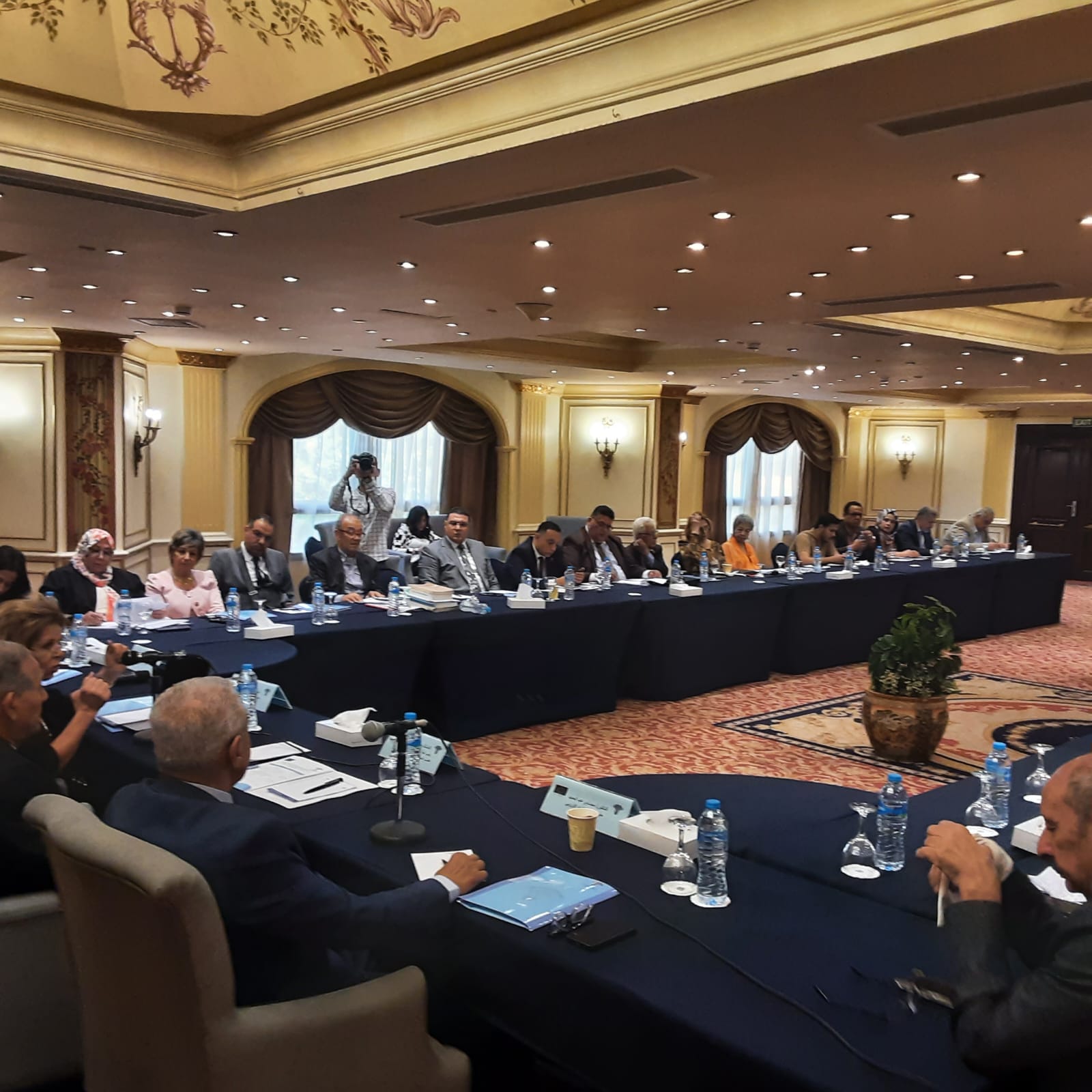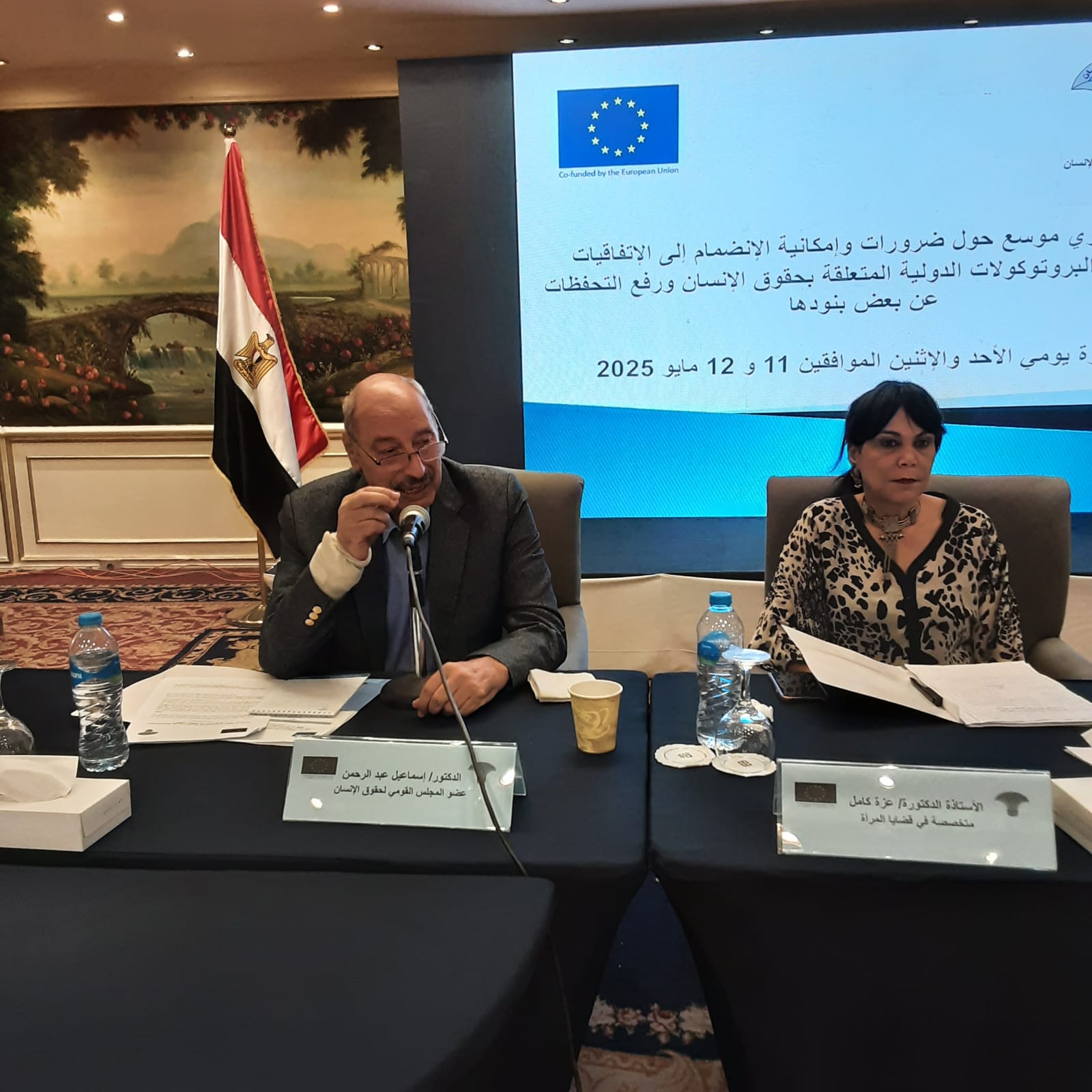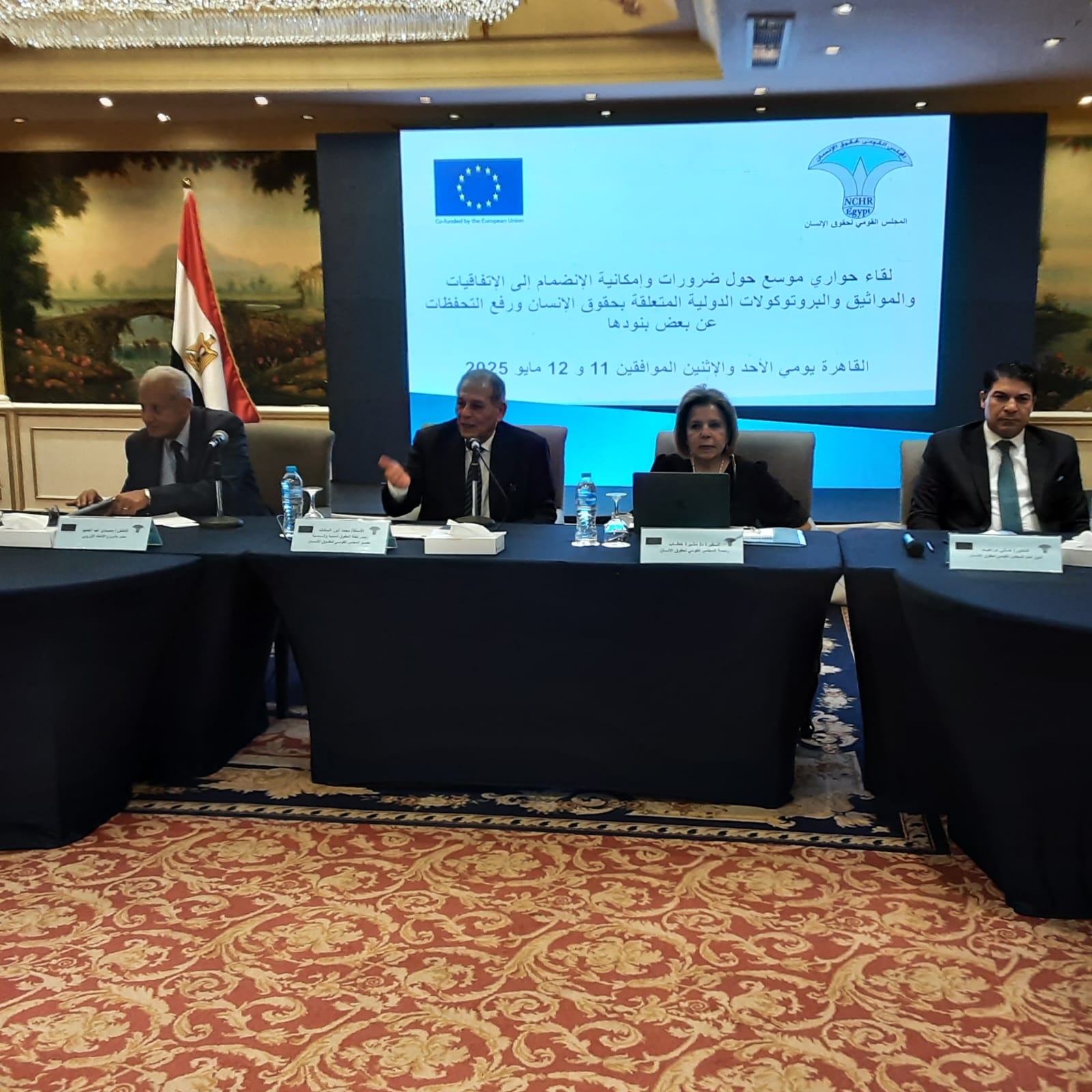NCHR convenes broad-based dialogue on accession to international human rights treaties and agreements
The National Council for Human Rights (NCHR) held a comprehensive two-day dialogue entitled: "Mechanisms for Accession to International Human Rights Conventions and Approaches to Lifting Reservations", reflecting its commitment to strengthening integration with the international human rights system and reinforcing Egypt’s treaty obligations. The dialogue aimed to contribute to the development of the national human rights framework and enhance its compatibility with United Nations standards. Participants included NCHR members, a wide array of experts, academics, and public figures, as well as representatives from national councils on women, childhood, and persons with disabilities.
Day One focused on the Convention on the Elimination of All Forms of Discrimination Against Women (CEDAW). Discussions addressed the convention’s thirty articles, emphasizing the necessity of achieving substantive gender equality. Participants examined the impact of Egypt’s reservations on its obligations toward women and girls, and highlighted the importance of enacting the Anti-Discrimination Commission Law as a constitutional imperative. The dialogue also underscored the need for legislative review to ensure alignment with Egypt’s international commitments. A dedicated session further addressed the 1951 Convention Relating to the Status of Refugees, with participants evaluating the implications of Egypt’s reservations on the rights of refugees, including access to employment and integration, and calling for a review of national asylum policies to ensure consistency with international standards.
Day Two was devoted to the Convention against Torture and Other Cruel, Inhuman or Degrading Treatment or Punishment (CAT) and its Optional Protocol (OPCAT). Participants explored the challenges of implementing the convention within the Egyptian context. A policy paper presented by human rights defender and advocate Sherif Azer noted that Article 126 of the Penal Code provides a limited definition of torture, inconsistent with Article 1 of CAT, which facilitates impunity by classifying violations as "use of cruelty" subject to reduced penalties. The paper also criticized the continued application of laws such as the Anti-Terrorism Law, which grant judicial officers immunity and hinder accountability for violations, constituting a breach of Articles 2 and 16 of the Convention. Recommendations included amending relevant legislation, acceding to OPCAT, criminalizing enforced disappearance, and establishing an independent oversight mechanism for places of detention.
Ambassador Moushira Khattab, President of the NCHR, affirmed that ratifying international conventions is not a symbolic act, but a necessary measure to ensure respect for human dignity and to strengthen cooperation with the UN human rights system. Dr. Hani Ibrahim, Secretary-General of the NCHR, emphasized the Council’s commitment to fostering effective dialogue with executive and legislative bodies to integrate international standards into the national legal framework. The Chair of NCHR’s civil and political rights committee stressed that the success of the NCHR should be measured by its ability to meet the aspirations of the Egyptian people, noting that the government is currently addressing approximately 350 UN recommendations, over 80% of which have been implemented to date.
This dialogue forms part of the Council’s broader efforts to urge the Government to accede to relevant human rights conventions and protocols, to operationalize international recommendations, and to monitor the implementation of outcomes from the Universal Periodic Review process.





 English
English
 Arabic
Arabic
 French
French
